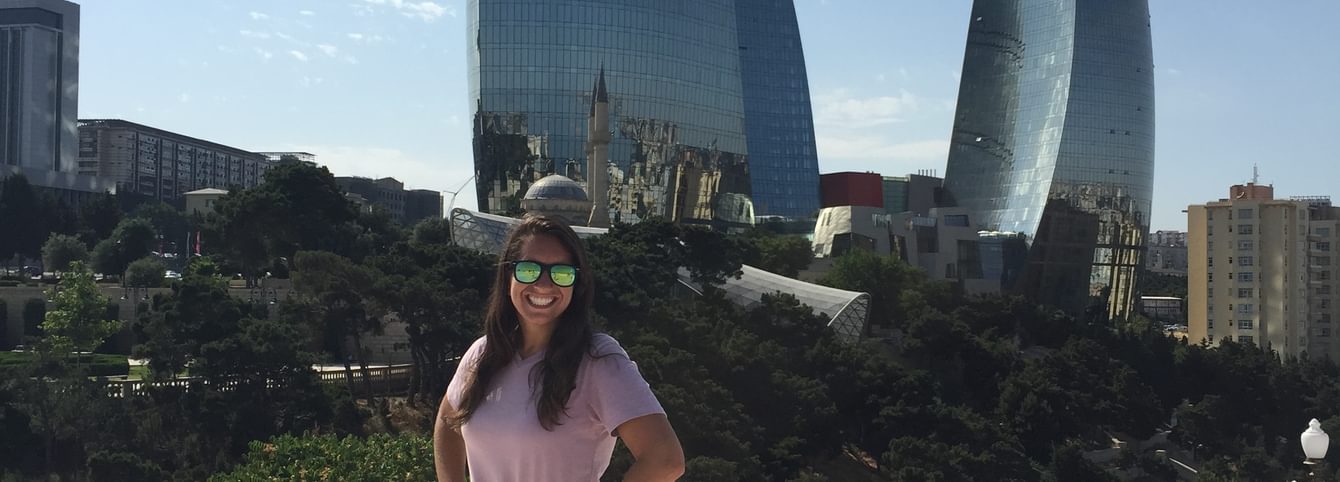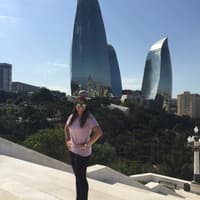Andrea Howard
Andrea Howard is an alumna of the 2015 CLS Azerbaijani program in Baku, Azerbaijan. She is from Norcross, Georgia, and is currently completing a Master of Arts in Science and Security as a Marshall Scholar at King’s College London. After she finishes her graduate studies, she will serve the United States Navy as a submariner. When she’s not studying or training, she enjoys singing, running, playing the guitar, and playing basketball.
Why Azerbaijani?
Azerbaijan is a small country, but as the nexus between Russia, Turkey, and Iran, it has huge geopolitical influence. When I transition from my graduate studies into my military naval service, my familiarity with the region and the local language will set me up for unique opportunities to engage with the Caucus as a representative of the U.S. military: as a submariner, I will complete missions to the Mediterranean Sea, Black Sea, and Arabian Gulf and use my first-hand experience with the Caucasus to gain insight into the region; when I surface for shore duty, I will supplement these experiences with my Turkish language proficiency to seek military advisory billets in the executive branch. Ultimately, I aspire to transfer laterally into the Navy's Foreign Area Officer program. In this young community, the Navy requires linguistic proficiency to both strengthen relations with foreign coalitions and win "hearts and minds" on a grassroots level.
The CLS effect
The CLS Program allowed me to visit and begin to understand a region of the world I likely would not have explored independently. In Azerbaijan, I established lasting personal connections; the Azerbaijani people were my favorite part about living in my host country. They take immense pride in their country, and it was a pleasure to explore the history of the Caucasus in the local language. My language proficiency would not have risen nearly so dramatically without the help of the friendly teachers and residents of Baku. With their help, I gained confidence in my ability to quickly learn a new language.
If you had one day in Azerbaijan…
Check out Gobustan, a territory containing petroglyphs dating back to 10,000 BC.
In a word…
My favorite phrase is “Bu super əladır!” – “This is super perfect!”
Words of wisdom
Speak the language as much as possible because bashfulness will severely hinder your progress. When you show interest in a critical language as an American, your hosts will respond positively and become extremely willing to help you.



